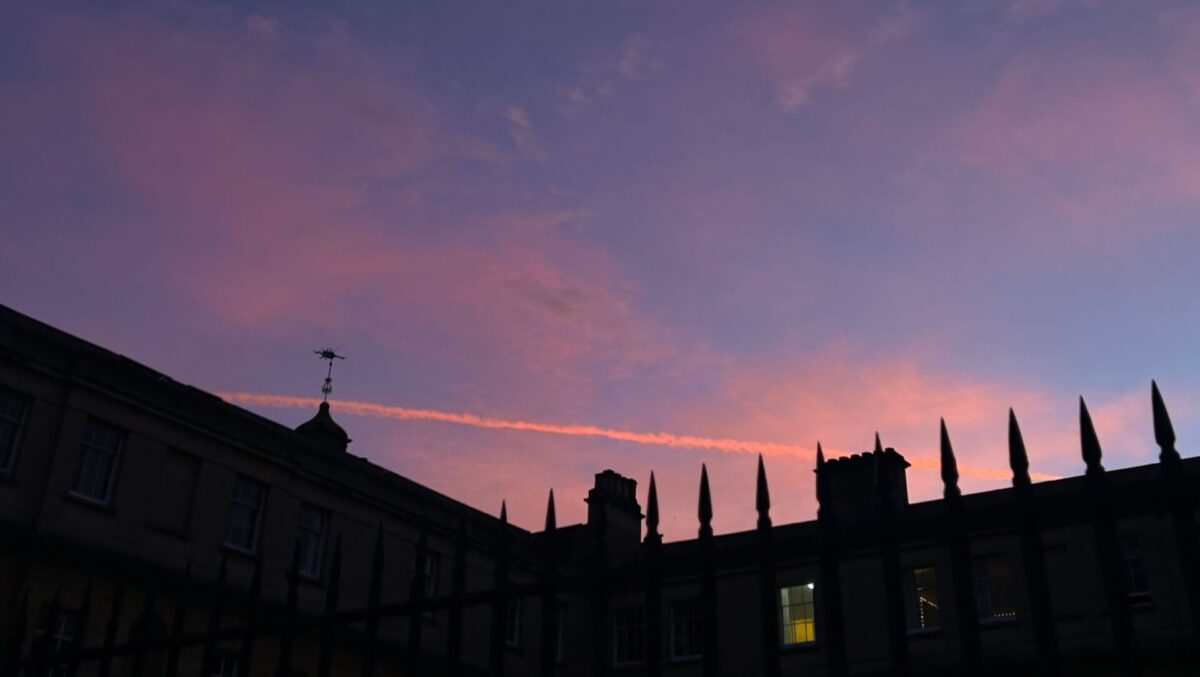‘Anyway, don’t be a stranger’
(Phoebe Bridgers, Scott Street)
I recently got back in contact with an old friend from school, but to distill this reconciliation into a phrase so short and insignificant doesn’t quite seem to convey the weightiness of this event.
‘Old friend’ is the type of description my mum would use to describe an acquaintance from university that she hasn’t seen in ten years; my ‘old friend’ was one of my best friends for over six years, someone I drifted apart from gradually throughout sixth form, until she became someone whom it hurt to see on Instagram, and, subsequently, I decided to stop any chance of seeing what her life without me in it consisted of by unfollowing her. This led to an (admittedly justified) frustrated text from her, the first contact in six months, and within days every wall I’d built up around her, every bitter bone in my body, all the pent-up anger and hurt I’d harvested with respect to her simply seemed to dissipate, and suddenly I was back in high school, sat in the field during a PE game of rounders and talking to one of my best friends.
It occurred to me shortly after how strange it is that all it can take is a few text messages to resolve what I thought was an irrevocable friendship breakup. Was that really all it needed? Communication? Honesty? To admit that I was hurt? It somehow worked out that my unfollowing led to reconciliation, but I cannot help wondering whether we would have ever spoken again if I hadn’t taken that dramatic leap in the other direction.
The concept of losing someone that you are close to is prevalent everywhere in all forms of media, mostly music, but I would argue that losing a friend hurts significantly more than losing a relationship – particularly a lifelong friendship. It’s more personal, more accidental, more confusing – they don’t need to argue with you or announce ‘we’re breaking up’. It can just be a slow separation, a steady drifting in opposite directions, a gradual loss of similarities until it’s whittled down to nothing. But the memories of a friendship often outlast those of a relationship – your formative years are marked by their presence, your first sleepovers, laughing until you get kicked out of science lessons, whispering about crushes. I thought for a while about whether it is a good idea to reconcile a past friendship, especially one that was mostly ended on their part.
But it was a bright, sunny day after a long, cold winter. I’d been for a walk, I’d eaten a crepe, I’d looked at the water circling itself in university parks while listening to ‘Scott Street’ by Phoebe Bridgers; I’d thought about what it means to become a stranger, because by definition a stranger is someone you’ve never met. Some of my favourite song lyrics centre on the concept of someone becoming a stranger: ‘please don’t ever become a stranger whose laugh I could recognise anywhere’, ‘now you’re just a stranger I know best’, ‘anyway, don’t be a stranger’ – it’s a concept that fascinates and depresses me. How can that process of knowing and understanding someone be reversed? How much can we change, in six months, in order to render us strangers to each other? I listened to the singing in my headphones and then I stopped listening to Phoebe Bridgers and started listening to the quiet of the world around me: the gentle stream of rushing water, the light breeze tickling the leaves of the trees, the geese honking intermittently. I decided I didn’t want someone I loved to become a stranger to me, and I realised how much I really, genuinely wanted to know what was going on in her life. I suddenly had no desire to keep being petty and bitter, or miserable when I remembered how close we had been. I just accepted what was beneath those negative feelings: the desire to know the littlest things, how she spends her days now and who she speaks to and which TV shows she’s watching. I let everything from the last six months fall away and float into the cloudless sky, past the subtle brightness of the moon quietly hovering beyond the Oxford skyline, past the past itself. I didn’t plan out a text message, or write it out in my notes app, rereading it worriedly before hitting send – I replied bit by bit, separate texts for each reply like I used to do, honest and open and direct and easy. With each text and with each reply I stopped holding my breath, laughed at the ridiculousness of it all, of almost losing a friend and gaining a stranger.
In short, friendship breakups are often more intrinsically complex than normal breakups, especially when they end in a confusing and vexing manner. But the benefit of friendship breakups is that it is often also a lot easier to reconcile than a relationship: you slot back into each other’s lives like a puzzle piece, and things start to feel a little more complete than before. Some friendships end for the better, some end for the worse – but if you are questioning whether to reach out to that old friend, I would recommend just doing so. It’s worth seeing what will come out of it. Or, if you’re like me, just take the extreme route and unfollow them instead – it might work out in your favour.

